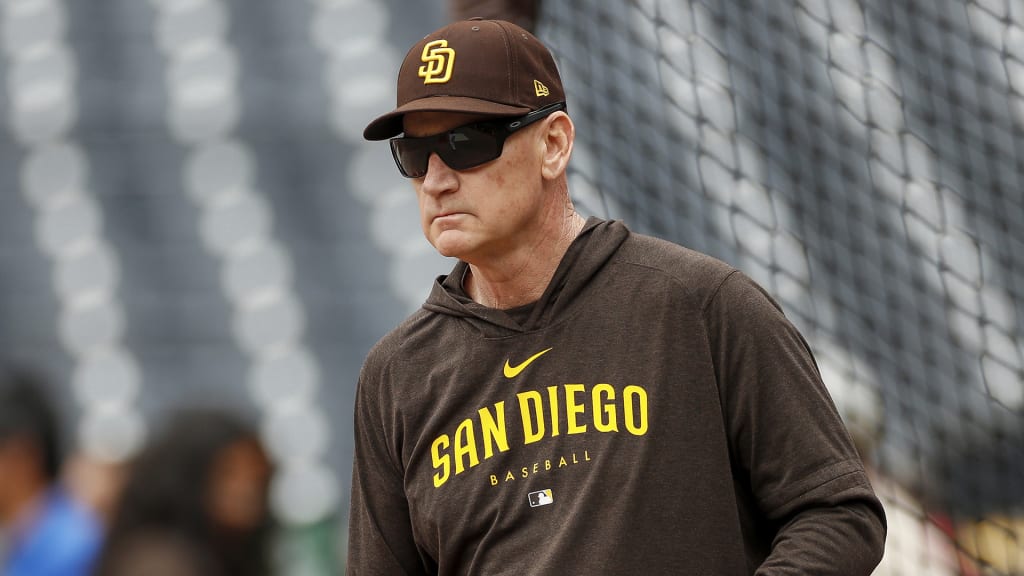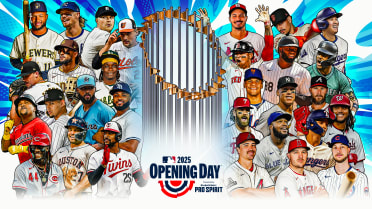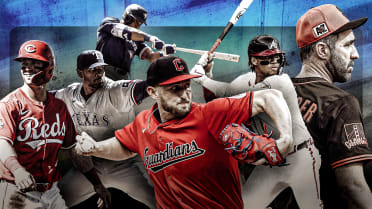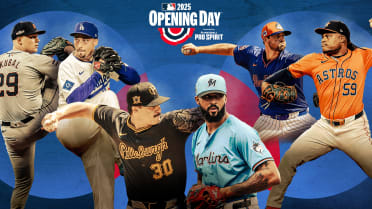
One thing is certain: Padres third-base coach Matt Williams still has the fire for baseball.
It’s 1:30 p.m. on a Friday at Citizens Bank Park in Philadelphia. It’s hot and humid, and the Padres are having early fielding practice. There’s Williams with a fungo bat in his hands working with the team’s infielders.
One couldn’t tell that Williams, 57, is in his third round of chemotherapy in his fight with colon cancer, which was discovered in early March after he took a routine blood test. Williams never had issues before, but this particular test revealed that he was anemic, and the doctors were dumbfounded.
“Why are you bleeding somewhere? Why are your red blood cells going down with no symptoms?” Williams said the doctors asked him. “We performed the tests and they found the cancer.”
There is a fourth round of chemo coming soon. Hopefully, after that, if all the scans are good, Williams will be cancer-free and will get check-ups every three months.
Williams said some days are better than others, but overall everything is manageable.
Since returning from cancer surgery on April 13, Williams hasn’t missed a day of work. That hasn’t stopped manager Bob Melvin from asking Williams the daily question, “How are you doing?”
There are times Williams will wave him off and say he is fine.
End of conversation.
“You don’t hear two words [about cancer]. He doesn’t want to talk about it,” Melvin said. “He is one of the toughest guys I’ve ever been around in the game. It means a lot to this team as well, because of the respect he gets during his playing career, coaching career and managerial career.”
The friendship between Williams and Melvin goes back to when they were teammates with the Giants in the late 1980s. Williams doesn’t want any special treatment from his good friend.
“I’m able to coach third, do my duties and all that, so those are all positive signs,” Williams said. “It’s the job that I signed up for. The doctors, my fellow coaches, the team are amazing with me. They have allowed me to take a break when I need to.
"I guess the best way to say it is the way the doctor put it to me, ‘This is not your dad’s chemo.’ The advances that they have made are such that you are able to work. You are able to live your life. I’m able to do my normal routine. I’ve taken that to heart.”
If cancer did anything to Williams, it reinforced his love for baseball. He has been in professional baseball since 1986 when the Giants selected him in the first round of the MLB Draft.
He will tell you the fire for the game is still there. That zest for the sport came out when he was a Major League player, coach and manager. Williams was a five-time All-Star with the Giants and D-backs, and he won the National League Manager of the Year Award with the Nationals in 2014.
“I don’t think the fire will ever leave,” Williams said. “A part of my objective when I was diagnosed was to prove to myself that the fire is there. Just keep going. Just keep moving.
"A lot of folks who have gone through this or something like this told me the attitude is the most important thing. The drugs will take care of stuff, but if you have the right attitude, it goes a long way. I try to take that seriously and move forward.”
While Williams has a great attitude, the cancer made him realize that he is not bullet-proof.
“What I learned is I should have been on top of something like this a long time ago,” Williams said. “The issue is, with this type of cancer, there are really no symptoms. You don’t know unless you get your colonoscopy and get checked. We are big, strong athletes. You [believe that you] don’t need to do that, [but it's not true]. You need to go do it. If I would have done it earlier, I wouldn't be in this situation.
“At the same time, the fact that I’ve gone through this makes me a stronger person. You don’t want this to become a stronger person, but it has made me stronger and makes me appreciate things more.”
Williams didn’t realize how many people cared about him until after he was given his cancer diagnosis. His family, including wife Erika Monroe, friends, the Padres front office and coaching staff always check in to see how he is feeling.
“The response blew my mind. That’s a gratifying feeling,” Williams said. “I heard from all of them -- from guys with the Diamondbacks, the Nats. They said, ‘Whatever you need, we’re here. Don’t be afraid to pick the phone up.’ The response has been so appreciated. It makes you feel better.”
Bill Ladson has been a reporter for MLB.com since 2002. He covered the Nationals/Expos from 2002-2016.




